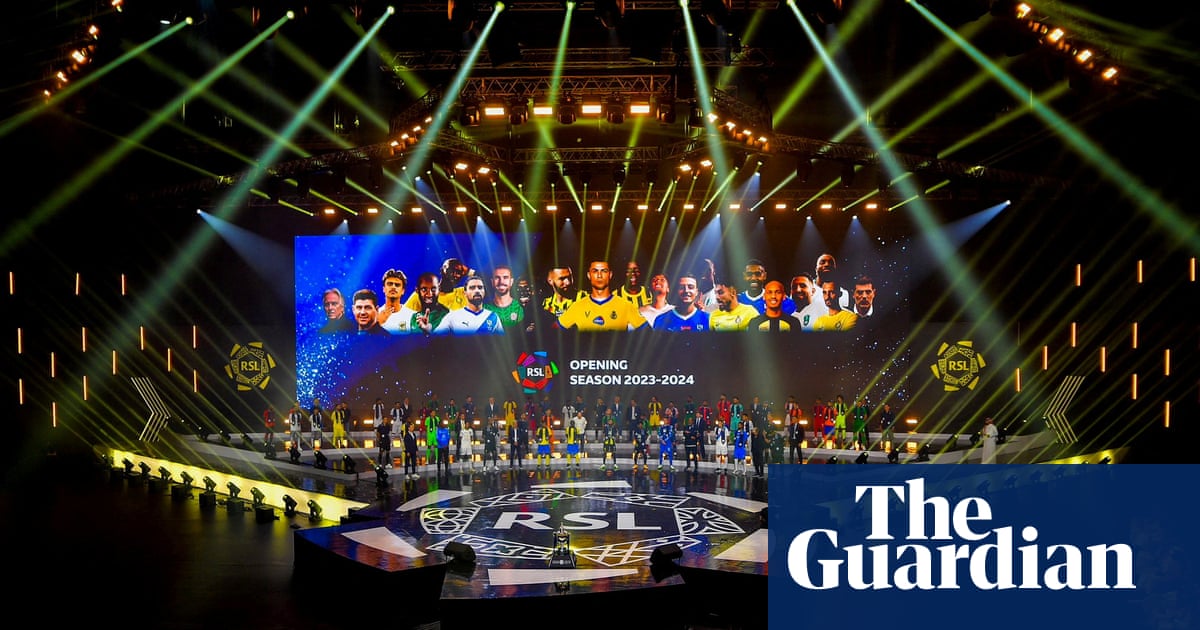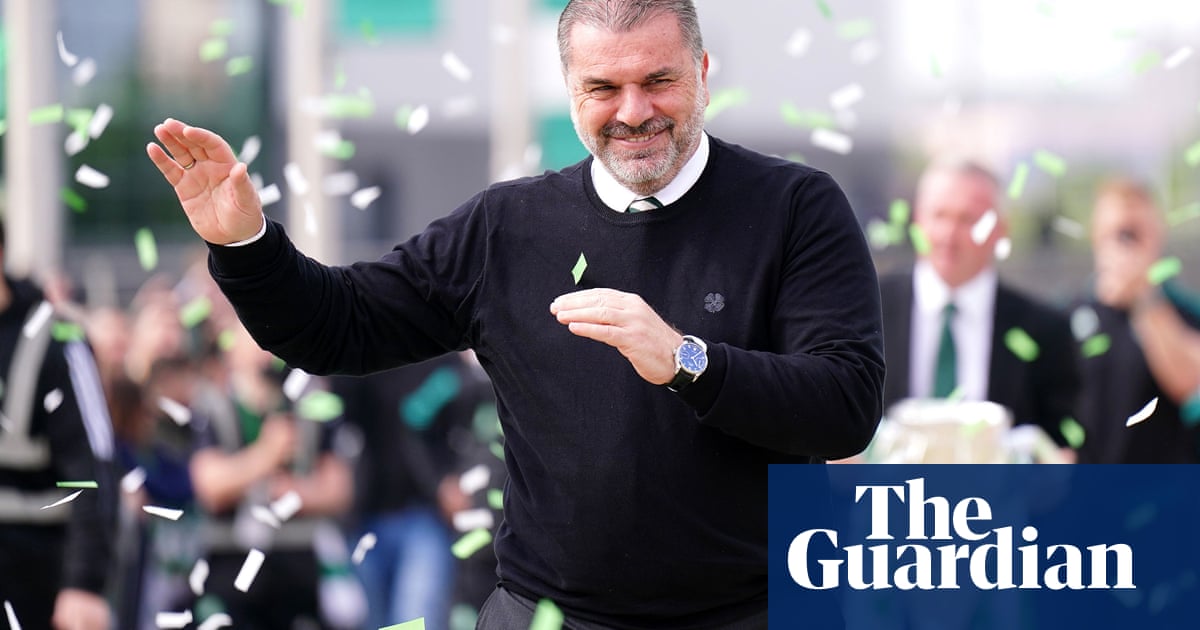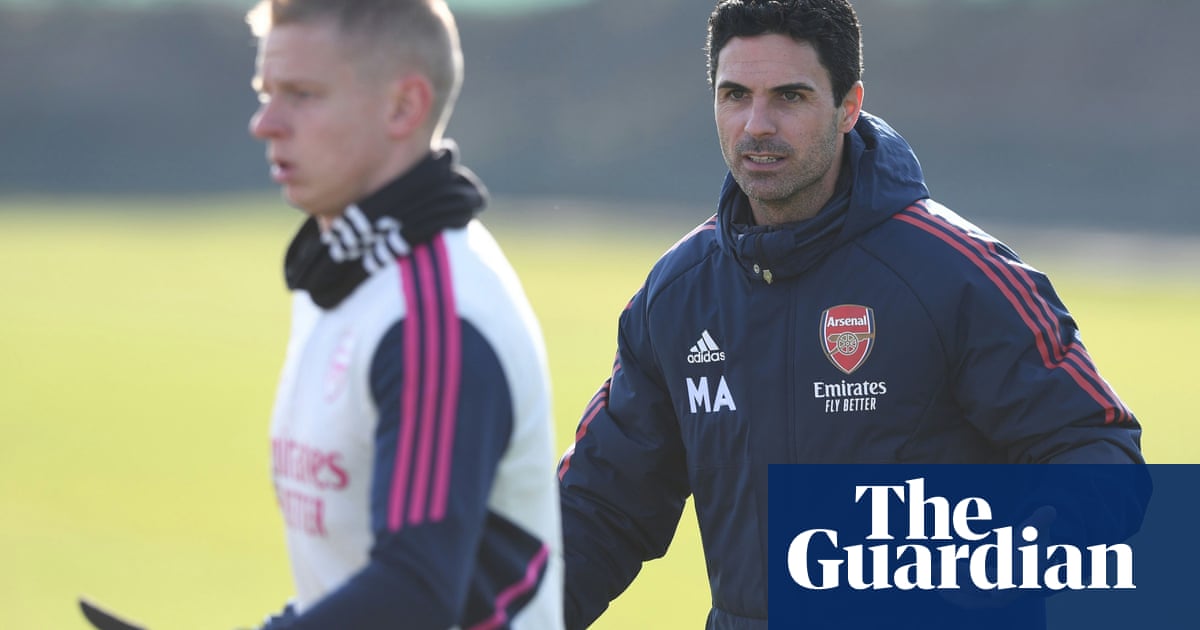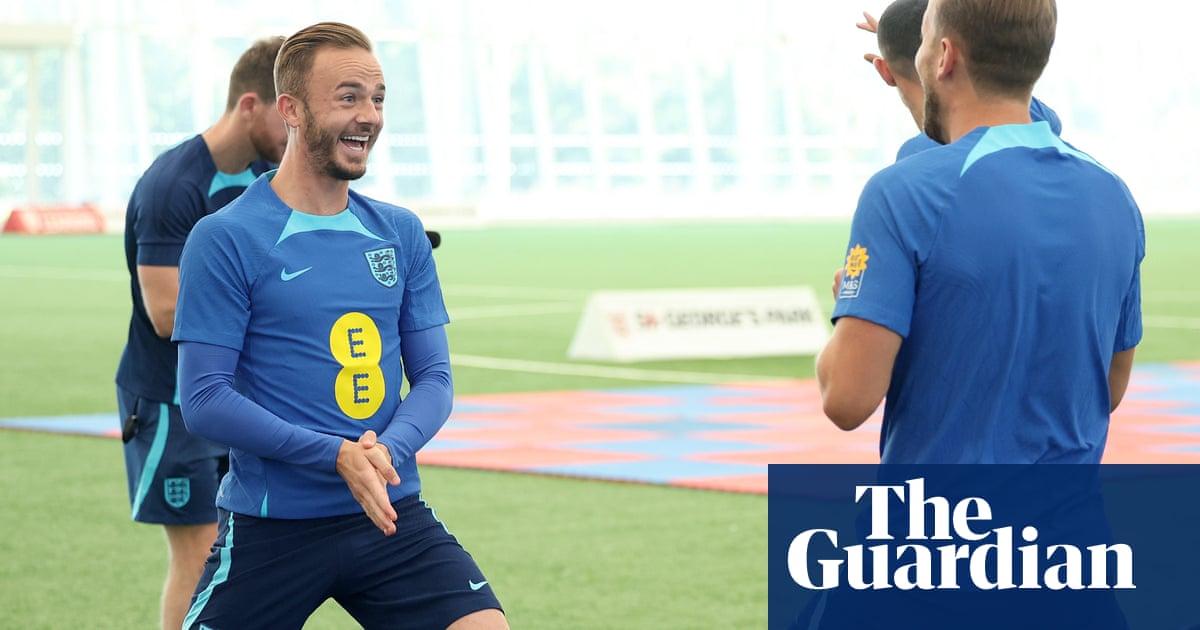
Anthony Martial played the pass, Edinson Cavani timed his run to deliver the cross and there was Marcus Rashford to sweep home, the stoppage-time goal giving Manchester United a 1-0 win over West Ham last Saturday and sparking wild scenes at Old Trafford.
“Manchester United are targeting West Ham’s top-four place,” roared the TV commentator. “Going Fourth,” declared the front page of the following day’s Observer Sport. And the first thing to say is this was not how United had imagined it at the start of the season.
They opened with a 5-1 home victory over Leeds and the idea was to build on last season’s second place under Ole Gunnar Solskjær and challenge Manchester City for the title.
As it is, Solskjær has gone, courtesy of a spectacular implosion, so has Michael Carrick, briefly the interim to the interim, and now the club’s fans, expectations radically downsized, would see it as relative success if they could hold on to fourth in the Premier League ahead of West Ham and the rest – principally Arsenal and Tottenham – under Ralf Rangnick, who will then hand over to a permanent manager.
United are in a rare state of uncertainty, prioritising short-term imperatives over a longer-term vision, albeit the latter is fundamental and not unrelated to the former; struggling to locate identity and conviction. Their rivals can see it. United have lost the fear factor. But can those clubs capitalise on the plot line that is set to crackle until the end of the season? Because what is clear is that they, too, have their problems.
The stand-out detail of Rashford’s winner was that Rangnick had introduced him, Martial and Cavani as second-half substitutes. It felt a little cobbled together, an illustration of how United have attacking players that they cannot properly accommodate or fulfil. Jesse Lingard is a prime example. Martial has, of course, since departed on loan to Sevilla.
But, on the other hand, when Cristiano Ronaldo, Mason Greenwood and Jadon Sancho are factored in, feel the firepower. And that is before the creative midfielders, Bruno Fernandes and the soon-to-be-fit again Paul Pogba, are considered. United have the individuals who can rise above the collective to make the difference at any time, irrespective of their situation. Remember how Lingard scored the winner in the 89th minute at West Ham last September?
At West Ham, there is quite the burden on Michail Antonio, the only pure No 9 at the club, although he has been supported by Jarrod Bowen, who is in the throes of a magnificent season, with Saïd Benrahma, Pablo Fornals and Manuel Lanzini chipping in. And the dynamics are similar at Arsenal and Spurs.
In the case of the former, it has been magnified by the exile of the centre-forward Pierre-Emerick Aubameyang, the latest illustration of Mikel Arteta seeking to establish a culture where discipline for the wider collective good is everything.
Alexandre Lacazette has exciting young players around him in Bukayo Saka, Emile Smith Rowe, Martin Ødegaard and Gabriel Martinelli, whose output has been impressive. But can the quartet continue to in effect over-perform, particularly Smith Rowe, who has eight goals in the league? As an aside, can Arteta get anything out of Nicolas Pépé?
At Spurs, it has been possible to count on the fingers of one hand how many attacking players have delivered for Antonio Conte – the lone No 9, Harry Kane, and the wingers Son Heung-min, Lucas Moura and Steven Bergwijn. It is not enough.
At Wolves, who can count themselves as being on the fringes of the race after a fine season, one statistic stands out. They have 19 goals from 21 league games. It is not the kind of form that screams Champions League qualification.
It is about quality, first and foremost and when West Ham, say, are able to play their best XI, they can look a match for anybody. Declan Rice is sure to be in the player of the year conversations.
Yet it is about depth, too – particularly with the pandemic exerting its remorseless strain – and they have felt the losses to injury of the centre-halves Angelo Ogbonna and Kurt Zouma. The former was ruled out for the season after going off in the eye-catching home win over Liverpool in early November while the latter is only just back from a seven-week absence.
Arsenal and Spurs also suffer a significant drop-off when the understudies have to step in and it is a part of the reason why the closing days of the January transfer window are so important.
United are the best resourced and yet they have underwhelmed since Rangnick took over in early December, there being little evidence of a new-manager bounce or him making a distinctive mark on the team.
Despite the attacking riches, they have found goals difficult to come by during what has been a favourable run of fixtures and the contribution of David de Gea has remained crucial. The opening 70 minutes at Aston Villa were perhaps as well as they have played – some signs of Rangnick-ball? – before they were pegged back to 2-2 and they have rather got away with it in some of their wins.
If United must have Champions League football because, without it, the sell to the new manager would be so much harder, then West Ham are simply enjoying the ride. Few people saw this coming from them and it has been a rare challenge; echoes of their run to fifth in 1998-99 under Harry Redknapp, their highest finish of the Premier League era.
David Moyes has shaped a team in his image – shrewd, selfless, never-say-die – and the manager must wonder where they would be without the home losses to Brentford, Southampton and Leeds.
Only Chelsea have played more league games than West Ham, there has been the charge into the Europa League last 16, plus the Carabao Cup wins over the Manchester clubs, and so the tiredness that has crept in of late has been inevitable.
The domestic break offers them the chance to draw breath for the next push, although Antonio will not have his feet up. He has three World Cup qualifiers to play with Jamaica.
Arsenal remain enigmatic, capable of quick and well-structured football, performances to light the path to a promising future and then moments when it all goes dark; sometimes within the same 90 minutes. They can take steps forward in one area – the development of Saka and Smith Rowe – and then see a crisis blow up elsewhere, such as the Aubameyang situation. Indiscipline is an issue. Since Arteta took over in December 2019, they have had 14 red cards, more than any club in the division.
It often feels draining and the same is true of Spurs, where Conte has grumbled constantly about the squad at his disposal – with justification – giving the impression that job satisfaction can only be a pipe dream but, at the same time, bringing the team up on the rails. He is mindful of the gap to the top and so do not tell him that if Spurs were to win their four games in hand, they would jump above third-placed Chelsea.
For Conte, who represents the hope for Spurs and yet is also central to a sense of impending peril, it has to be about the space below Chelsea. The scramble to claim it will be all-consuming.












